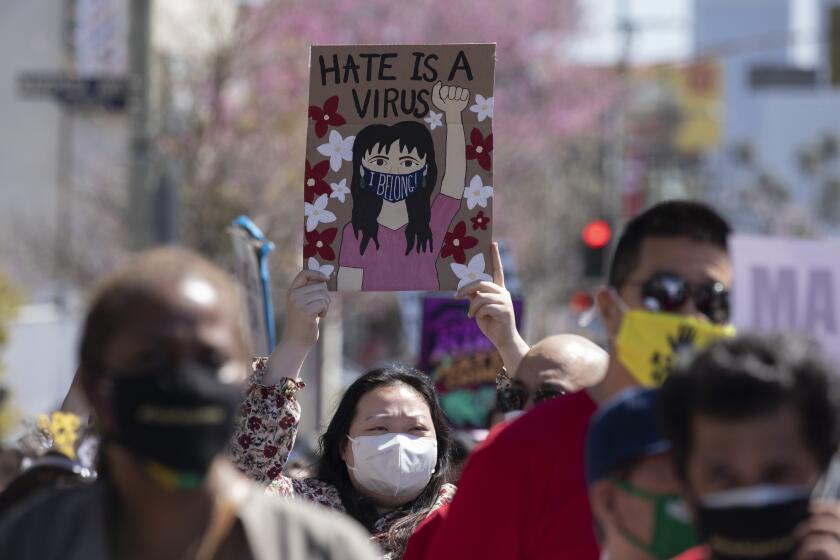‘Captain Underpants’ book pulled for ‘passive racism’ against Asians

- Share via
NEW YORK — A graphic novel for children from the wildly popular “Captain Underpants” series is being pulled from library and bookstore shelves after its own publisher said it “perpetuates passive racism.”
The book under scrutiny is 2010’s “The Adventures of Ook and Gluk” by Dav Pilkey, who has apologized, saying that it “contains harmful racial stereotypes” and is “wrong and harmful to my Asian readers.”
The book follows a pair of friends who travel from 500,001 B.C. to AD 2222, where they meet a martial-arts instructor who teaches them kung fu and where they learn principles of Chinese philosophy.
Scholastic said it had removed the book from its websites, stopped processing orders for it and sought a return of all inventory. “We will take steps to inform schools and libraries who may still have this title in circulation of our decision to withdraw it from publication,” the publisher said in a statement.
In a YouTube statement, Pilkey said he planned to donate his advance and all royalties from the book’s sales to groups dedicated to stopping violence against Asians and to promoting diversity in children’s books and publishing.
“I hope that you, my readers, will forgive me, and learn from my mistake that even unintentional and passive stereotypes and racism are harmful to everyone,” he wrote. “I apologize, and I pledge to do better.”
Hundreds of demonstrators gathered in Koreatown on Saturday for a unity rally and march to demand an end to the surge in anti-Asian hate and violence.
The decision comes amid a wave of high-profile and sometimes deadly violence against Asian Americans since the COVID-19 pandemic began.
Earlier this month, the estate of Dr. Seuss said six of his books would no longer be published because they contained depictions of groups that were “hurtful and wrong,” including of Asian Americans. The move drew immediate reaction on social media from detractors who called it another example of “cancel culture.”
More to Read
Sign up for our Book Club newsletter
Get the latest news, events and more from the Los Angeles Times Book Club, and help us get L.A. reading and talking.
You may occasionally receive promotional content from the Los Angeles Times.











